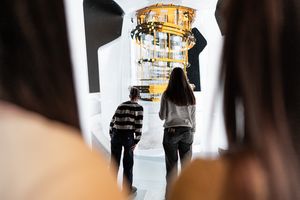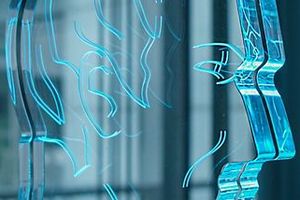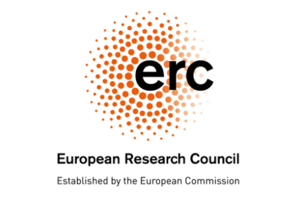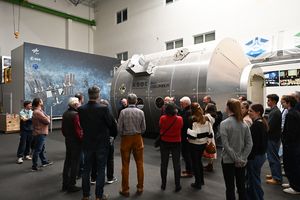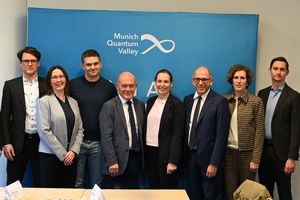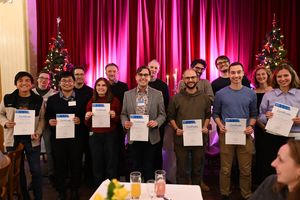Welcome to Munich Quantum Valley
Munich Quantum Valley (MQV) promotes quantum science and quantum technologies in Bavaria with the primary goal of developing and operating competitive quantum computers. It connects research, industry, funders, and the public: Munich Quantum Valley promotes an efficient knowledge transfer from research to industry, establishes a network with international reach and provides educational offers for schools, universities and companies.
Munich Quantum Valley is supported by the Bavarian state government with funds from the Hightech Agenda Bayern.
Latest news
Looking back on the Year of Quantum 2025
The International Year of Quantum Science and Technology 2025 is coming to an end. Proclaimed by the United Nations on the occasion of the 100th anniversary of the formulation of quantum mechanics in 1925, universities, research institutions, scientific societies, and many more around the world participated in the Quantum Year. Munich Quantum Valley (MQV) also organized numerous activities and events to celebrate the Quantum Year with its community and, in particular, to take the public on a journey into the impressive world of quantum mechanics. A look back at the highlights.
MQV end-of-year greetings 2025
As we conclude the year in which we celebrated a century of quantum science and technology, we would like to thank you very much for your commitment and dedication during this special year. May the holiday season bring you and your loved ones much joy and peace. We look forward to a new year full of happiness and achievements, big and small.
MQV member Frank Pollmann receives Leibniz Prize
On 11 December 2025, the German Research Foundation (DFG) announced the recipients of the 2026 Leibniz Prize. MQV member Prof. Frank Pollmann was also honored with the prestigious research award.
ERC Consolidator Grants for Christopher Eichler and Christian Schilling
MQV members Christopher Eichler of Friedrich-Alexander-Universität Erlangen-Nürnberg (FAU) and Christian Schilling of Ludwig-Maximilians-Universität München (LMU) have been awarded the prestigious Consolidator Grants of the European Research Council (ERC).
MQV-Einblicke: Quantum technologies in space operations
On 2 December, the German Space Operations Center (GSOC) in Oberpfaffenhofen opened its doors as part of the event series “MQV-Einblicke – 100 Jahre Quantenwissenschaften und woran wir heute forschen.” During a lecture and a tour of the institute, visitors gained exciting insights into satellite operations and learned about the potential that GSOC scientists see in quantum technologies for space operations.
Forward-looking exchange between Basque Quantum and Munich Quantum Valley
On 27 and 28 November 2025, a high-level delegation from the Basque government visited Munich Quantum Valley (MQV). The delegation met with MQV representatives from management and science to identify scientific and strategic interfaces between the two quantum hubs and explore potential areas of cooperation. The initial meeting has already generated concrete ideas for future joint projects.
Quantum Talents Symposium 2025
On 24 and 25 November 2025, the second edition of the Quantum Talents Symposium took place in Garching. Organised by Munich Quantum Valley (MQV) and other members of the Munich quantum community, the event brought together outstanding talents in quantum sciences from around the world to promote knowledge exchange and collaboration.
Spotlight
Experience quantum science up close
Experience cutting-edge research in quantum technology! In the event series “MQV-Einblicke – Quantenwissenschaften vor Ort erleben”, the member institutes of Munich Quantum Valley (MQV) as well as start-ups and industry partners of MQV are opening their doors. Find all dates of the series here.

Quick Quantum Questions
New video out on YouTube.
Upcoming events
MQV-Einblicke – "Winzig klein und superschnell: Mikro-Photonik für Quantentechnologien"
Technische Hochschule Nürnberg Georg Simon Ohm
How can complex laboratory setups be transformed into compact, industry-ready components? Visit Technische Hochschule Nürnberg Georg Simon Ohm on 11 February 2026 to learn how researchers from the Optical Quantum Technologies working group are developing miniaturized and easier-to-use components for use in quantum technologies.
Future of Computing | Quantum Connect 2026
- 09:00 –
Vorhölzer Forum, Technical University of Munich
The Future of Computing Conference 2026 will take place in Munich on 3 March. The one-day event brings together corporate representatives and quantum technology experts to share ideas on how to improve quantum technology commercialization.
Quantum Fridays in the PhotonLab: March
- 14:00 –
Are you interested in quantum physics but can't find a good way to get started? Then the PhotonLab cordially invites you to join them in their student lab!
Quantum computing – from research to practice
-
15:00
–
Haus der Bayerischen Wirtschaft
On 14 April 2026, the Bavarian Industry Association and Munich Quantum Valley are hosting a joint event at the Haus der Bayerischen Wirtschaft in Munich.



